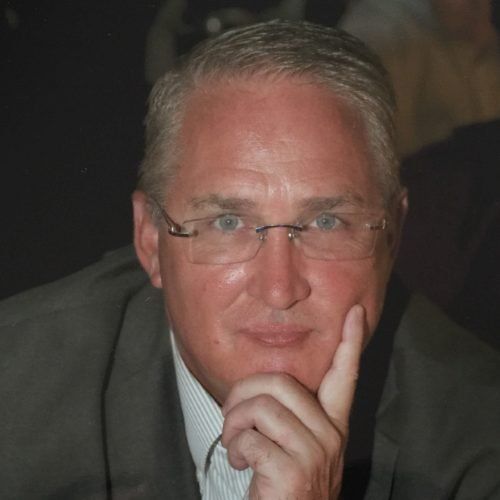Dowd & Dowd, P.C.
Metropolitan Square Tower
211 North Broadway, Suite 4050
Saint Louis, Missouri 63102
Telephone 314.621.2500
Facsimile 314.621.2503

Do you have a potential case for the injury or death of a US service person or civilian in Iraq?
Iranian Banking Case
Our partners, Osen LLC and Turner & Associates, P.A., represented more than 100 families of Americans who were victims of Iranian-facilitated terrorism in a case captioned Freeman v. HSBC, which was brought under the Anti-Terrorism Act (“ATA”). The lawsuit alleges that major international banks entered into a conspiracy with Iran and Iranian banks that resulted in: (1) the transfer of billions of U.S. dollars through the United States in a manner purposefully designed to circumvent U.S. regulators’ and law enforcement agencies’ ability to detect and monitor the transactions; and (2) the transfer of hundreds of millions of U.S. dollars to Iran’s Islamic Revolutionary Guard Corps-Qods Force (“IRGC-QF”), the designated Foreign Terrorist Organization Hezbollah, and other terrorist organizations and entities actively engaged in murdering and maiming U.S. servicemen and civilians in Iraq. The Complaint alleges that as a result of the conspiracy, Iran, (including its IRGC-QF), Hezbollah, Kata’ib Hezbollah (“KH”), and other terrorist entities planned, funded, supported, facilitated and perpetrated hundreds of terrorist attacks in Iraq between 2003 and 2011, killing hundreds of U.S. servicemen and civilians, and grievously wounding many others.
Our Team
Since 1957, the lawyers at Dowd & Dowd, P.C. have represented victims of personal injuries and wrongful conduct by insurance companies, product manufacturers and corporations, negligent drivers, and victims of medical and legal malpractice.
TAB TURNER
TURNER & ASSOCIATES, P.A.
DOUGLAS P. DOWD
Dowd & Dowd, P.C.
What The Law Can Do
The Complaint has been filed pursuant to a private civil remedy provision of the ATA, U.S. Code, 18 U.S.C. § 2333(a). This provision, which Congress enacted in 1992 both as a counter-terrorism deterrent and as a means of affording remedies to U.S. nationals victimized by terrorism, permits Americans physically or financially injured by reason of an act of international terrorism and/or their surviving family members, to sue in federal court, enabling them to recover three times their damages.

Shaffer V. Deutsche Bank
No. 3:16-cv-00497
This is a civil action under 18 U.S.C. § 2333(a) of the Anti-Terrorism Act (“ATA”) by American nationals for treble damages against Deutsche Bank AG, an international bank that knowingly conspired with, inter alia, the Islamic Republic of Iran (“Iran”) and its banking agents (including Bank Saderat, Bank Melli and Iran’s Central Bank) (the “Conspiracy”) from at least 1999 to 2011 to evade U.S. economic sanctions and disguise financial payments, thereby foreseeably enabling Iran’s involvement in the terrorist acts that injured the Plaintiffs.
Defendant committed acts of international terrorism by violating 18 U.S.C. § 2339A and § 2339B knowing, or being deliberately indifferent to the fact, that Iran would foreseeably use some of the funds it laundered through the United States to finance the U.S.-designated Foreign Terrorist Organization Hezbollah; the U.S.-designated Islamic Revolutionary Guard Corps (“IRGC”), and its lethal subdivision known as the Islamic Revolutionary Guard Corps-Qods Force (“IRGC-QF”); and Iran’s terrorist agents (including a litany of Iraqi Shi’a terror groups occasionally referred to herein collectively as “Special Groups”) that killed, injured, or maimed American nationals serving as part of the Coalition Forces’ peacekeeping efforts in Iraq from 2004 to 2011, including the Plaintiffs and/or their families.

The Facts
The Complaint alleges that Iran has long used terrorist surrogates to target U.S. forces, diplomats, and facilities in Iraq. From 2003 to 2011, Iranian agents led a network of Iraqi “Special Groups” – KH, Asa’ib Ahl al-Haq (“AAH”), and the Promised Day Brigades – that engaged in targeted kidnappings, assassinations, and attacks (including improvised explosive device (“IED”) attacks) on U.S. soldiers and civilians that killed hundreds of Americans and wounded many more.

The Plaintiffs
The Freeman Plaintiffs include individuals who were killed or injured between 2003 and 2011 by: (1) Iraqi terrorist groups trained, funded, and armed by the IRGC-QF; (2) Hezbollah; and/or (3) Iranian-manufactured IEDs. The lawsuit includes claims by members of their immediate families. The Complaint identifies more than 200 plaintiffs from 32 states across the country. The killed and injured include American servicemen ranging from privates to colonels. The
Complaint also includes the family of an American journalist, killed as a result of his fearless reporting from Basra, Iraq.

The Defendants
The Defendants include HSBC Bank plc, HSBC Bank Middle East Limited, and HSBC Bank USA, N.A. – all part of the HSBC Group, one of the world’s largest banking and financial services companies in the world. Other Defendants include Barclays Bank Plc, a global financial services provider headquartered in London, Standard Chartered Bank, also one of the world’s largest international banks, Royal Bank of Scotland N.V. (the successor of the Dutch banking giant ABN AMRO Bank N.V.), and Credit Suisse, all of which, as detailed in the Complaint, entered into DPAs or consent orders with regulators in which they acknowledged their efforts to evade U.S. sanctions concerning Iran.
The Defendants also include Bank Saderat Plc, a bank incorporated in England and Wales that is a wholly-owned subsidiary of Bank Saderat Iran. In October 2007, Bank Saderat was designated a Specially Designated Global Terrorist (“SDGT”) by the United States. The Treasury Department press release announcing Bank Saderat’s designation stated:
For example, from 2001 to 2006, Bank Saderat transferred $50 million from the Central Bank of Iran through its subsidiary in London to its branch in Beirut for the benefit of Hezbollah fronts in Lebanon that support acts of violence.
Dowd & Dowd, P.C.
Metropolitan Square Tower
211 North Broadway, Suite 4050
Saint Louis, Missouri 63102
Telephone 314.621.2500
Facsimile 314.621.2503
PRACTICE AREAS




